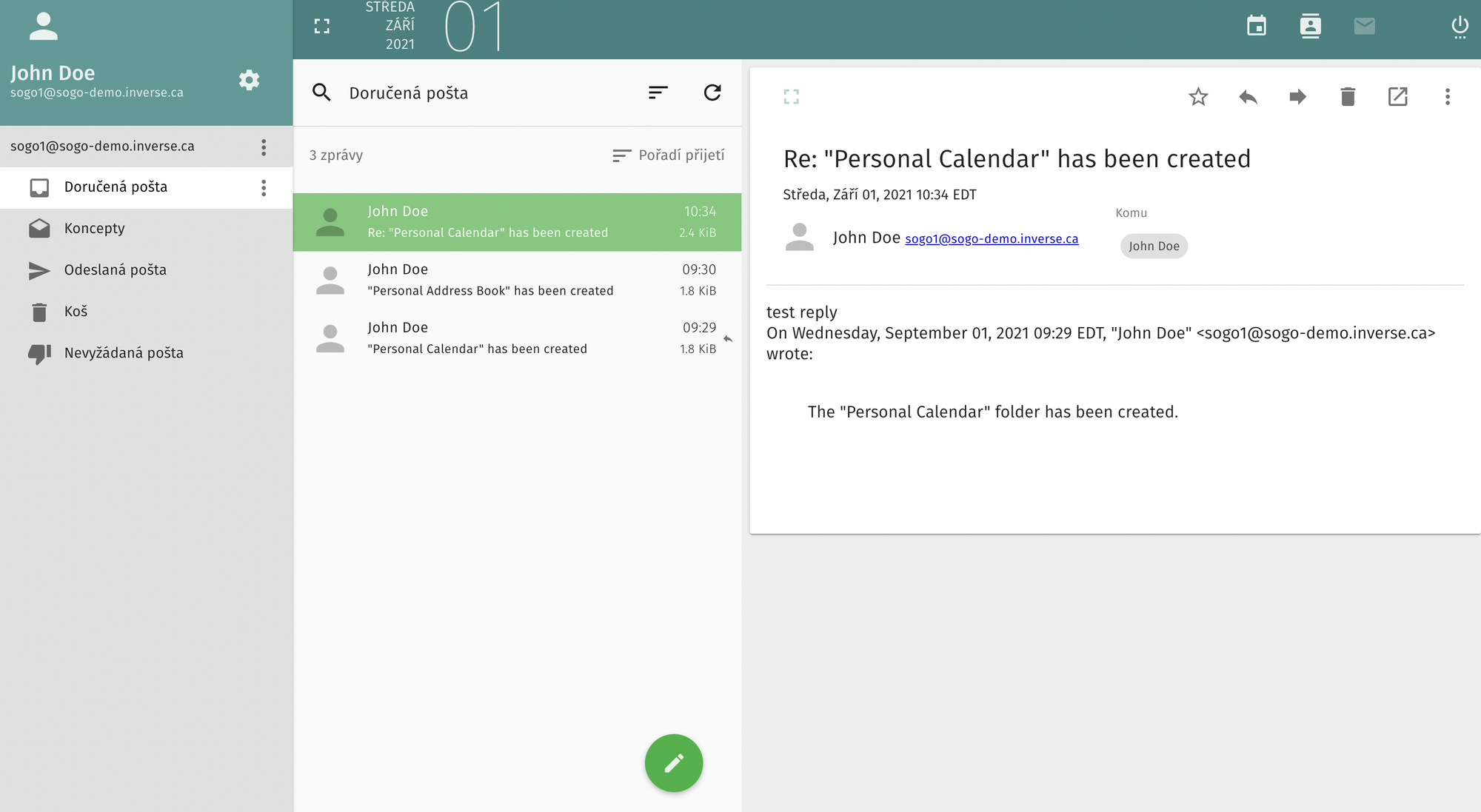SOGo: A Free open-source enterprise-grade Webmail and Groupware Server for teams
SOGo is an open-source groupware and IMAP/ SMTP webmail client for teams and enterprise.
The interface design follows Material design system which gives it a pro look and makes it more comfortable and productive for every-day use. It is responsive, reactive and real-time interface with full drag-and-drop, full-screen view, no-distraction mode with touch-screen support.
SOGo provides a rich AJAX-based Web interface and supports multiple native clients through the use of standard protocols such as CalDAV, CardDAV and GroupDAV, as well as Microsoft ActiveSync. (src)

SOGo integration
SOGo offers a professional integration for enterprise and professional desktop mail clients primarily for Mozilla Thunderbird and Microsoft Outlook.
SOGo also supports other native clients such as Apple Calendar, Apple Contacts, Microsoft Outlook and any CalDAV and CardDAV client. (src: SOGo)
How to get and run SOGo Groupware?
SOGo is available for download in three forms:
- The Backend core server
- Front-end: AJAX-based Web Interface
- Front-end for Thunderbird and Mobile
- The ZEG (Zero Effort Groupware) which is the whole suite packed together with simple fast install wizard.
Is SOGo groupware is for you?
We highly recommend SOGo for teams and communities as it proven and battle-tested at many enterprise environments in the past years.
Furthermore, SOGo groupware webmail client does not require an expensive server to run, a $5-$10 droplet from DigitalOcean (affiliate link) will do.
Features
- Responsive user-interface (AJAX-based Web interface)
- Multiple frontends (Thunderbird, Android and iOS)
- Thunderbird extension
- Scalable server
- Messages inbox
- Spam email manager
- Microsoft Outlook and ActiveSync integration
- Outlook CalDav Synchronizer support
- Multi-lingual support (+30 languages translated)
- Sharing option
- Reminders
- Recurring events manager
- Email Delegatation
- HTML messages
- WYSIWYG message editor
- Notification
- Categories manager
- Multiple email account support
- Mail filtering
- Messages search with filters
- Messages Forward and Auto-Reply
- Export/Import
- Two-factors authentication login
- S/MIME support
- SSO (Single Sign-on) support
- Desktop clients
- Mobile clients
- CalDAV, CardDAV, IMAP ACL support
- Third-party community extensions
- Data Caching
- Supports all modern browsers
Install SOGo on your server
SOGo groupware backend server application is available for download for RedHat Linux (RHEL 7 and RHEL8), Ubuntu, and Debian Linux.
SOGo developers also offers a neat wizard as an installation helper and SOGo package creator, which offers a user a selection for the Linux distro, SOGo version, environment (Production or Development) with simple credentials input. This creative wizard makes everything ready in seconds.
As we previously mentioned, SOGo can be installed easily on an affordable $5-$10 DigitalOcean (affiliated link) droplet, and that is an ideal solution as DigitalOcean offers all SOGo supported Linux Distros for their droplets.
License
SOGo application is an open-source solution which released under the GNU GPL/LGPL v2 and above.

